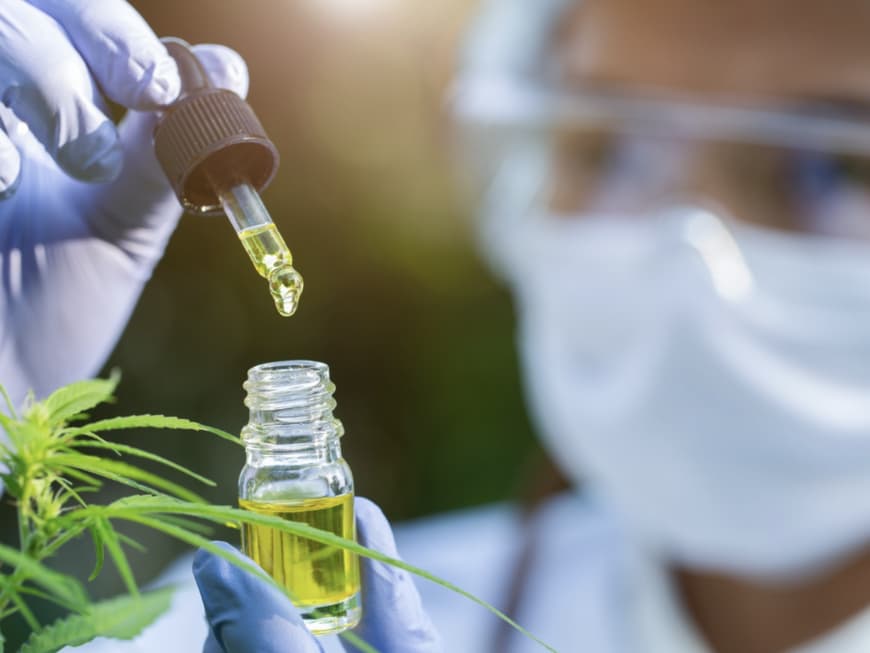Even if there are no promises of a cure, you can try out for yourself how CBD affects your body. The best way to do this is to use CBD oil, as it is particularly easy to dose. In this way, you can work your way up to the optimum dosage for you drop by drop. As soon as you have found this, you can easily switch to other CBD products.

The effect of CBD on the human organism
Even today, the mode of action of CBD is not yet fully understood. However, it has been discovered that there is a connection with the body's own endocannabinoid system. This in turn is involved in a variety of functions such as relaxation and the sleep-wake rhythm. The mode of action of cannabidiol was only really understood after this system was discovered.
However, it is so complex that a great deal of research is still needed to decode it completely. The EDS is a component of the nervous system and consists of receptors, cannabinoids and enzymes. The cannabidiol docks onto the special receptors so that it has effects on various bodily functions. The CB1 and CB2 receptors are particularly important in this respect.
Possible effects after taking CBD
You must be aware that CBD is a dietary supplement and not a medicine. This is primarily due to the fact that not enough is yet known about the properties of the substance. However, there are now some studies that point to the possible effects of CBD products. In 2004, for example, a study showed that the synthesis of inflammatory substances can be inhibited by cannabidiol. Three types of cell tissue were treated for this purpose, and the inflammation levels actually fell in all three.
Among the receptors of the endocannabinoid system, there are also those that have a connection to the sensation of pain. By interacting with these, CBD inhibits an enzyme that is involved in the breakdown of the body's own cannabinoids. As a result, the sensation of pain is reduced and well-being is promoted. Studies on mice have shown that CBD can calm the nervous system. In addition, it is known that CBD can also have an anxiolytic effect, making it suitable for the accompanying treatment of anxiety disorders.
User experiences are promising
Countless studies have so far provided evidence of CBD's mechanisms of action. In addition, numerous reports from users give hope that CBD could help with many complaints. This would be a fantastic alternative to many medicines, which are always associated with serious side effects. In recent years, there have been a whole range of positive experience reports, regardless of the form in which CBD was used. Some say that they experienced significantly less pain after taking CBD. With long-term use, it was often even possible to reduce the dosage of painkillers.
If someone suffers from inner restlessness and has problems falling asleep, CBD can indeed be helpful. CBD showed a calming effect in many users, which was also noticeable in a better quality of sleep. Others suffered from constant stress and tried CBD. In fact, they were able to relax and calm down much better due to the effect on the nervous system. CBD is now also an ingredient in some skincare products and is said to help combat blemishes.
How quickly an effect occurs and how long it lasts depends largely on the form in which it is taken. As there are many different CBD products, the application varies accordingly. Cannabidiol works particularly quickly if you use it sublingually. To do this, drip a few drops directly under the tongue, the active ingredients are then immediately absorbed into the bloodstream via the oral mucosa. If you don't like the taste, you can also take capsules, although the effect is then significantly weaker.







